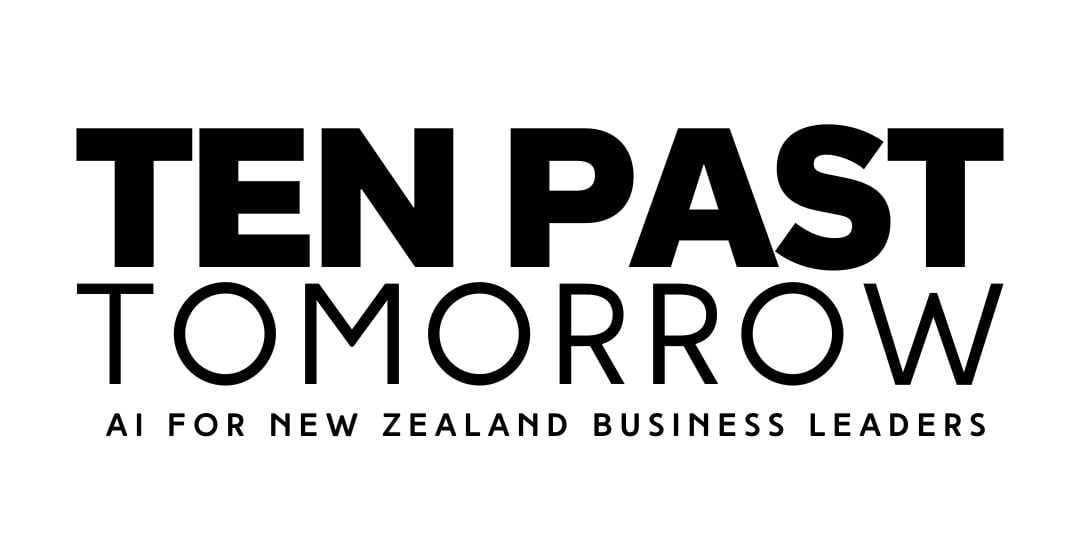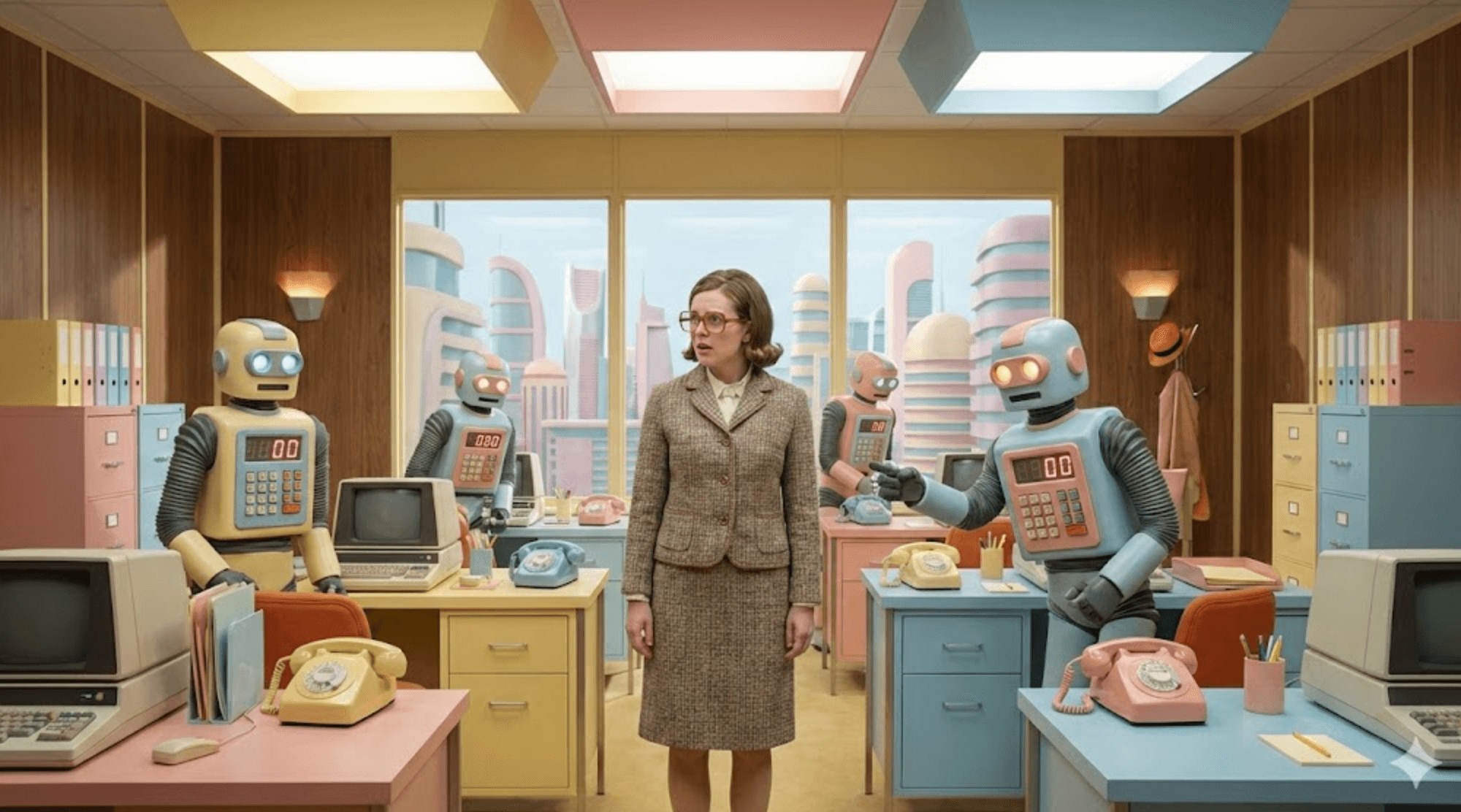The impact of AI on businesses and the future of work
Once a week or so, I like to really stretch the grey matter and read an academic research paper related to AI developments. They’re hard work to understand, but worth the effort as they give some really great insight into what’s around the corner for us all as AI-curious business leaders.
In this article, I’ll be reviewing an academic paper released yesterday as a collaboration between Open AI and The University of Pennsylvania.
The article “GPTs are GPTs: An Early Look at the Labor Market Impact Potential of Large Language Models” explains what GPT models and Large Language Models (LLMs) are, and how recent advancements in AI technology are changing the landscape of job automation, with white-collar jobs now at the forefront.
It was a timely read. Lately I’ve been thinking more about our responsibilities as New Zealand business owners and leaders, and in particular our AI responsibilities to our employees.
Where do our priorities lie on the spectrum of increasing efficiencies and productivity vs. looking after our human workers and their livelihoods?
I’ll do my best to summarize the research paper below, in non-technical language…
Firstly, what are GPT models and LLMs?
GPT models are a type of AI algorithm designed for processing and generating human-like text. The most famous example at time of writing is Open AI’s ChatGPT.
GPT models belong to a broader category known as Large Language Models (LLMs), which can handle various forms of sequential data, from natural language to code generation.
As we’re seeing every day, GPTs and LLMs are gaining attention due to their potential to impact a wide range of occupations and industries.
How exactly will GPTs affect jobs and the economy?
What really jumped out at me when reading this research paper was that all the chat over the past decade by AI researchers has been that blue-collar jobs will be the first to be affected by AI. Forecasts predicted that repetitive, low-skilled jobs would be the first on the chopping block once AI usage became widespread. Think; factory line jobs, data entry, call centre personnel, etc.
However, what’s fast becoming apparent is that the introduction of technology like ChatGPT has shifted those predictions, and AI forecasters are now saying that white-collar jobs are more likely to be the first that are impacted by the uptake of AI technology in the workforce.
The OpenAI & University of Pennsylvania research paper examined the potential impact of GPTs on numerous occupations and industries. They found that most occupations exhibit some degree of exposure to GPTs, with higher-wage occupations generally having more tasks with high exposure.
The study indicates that approximately 19% of jobs have at least 50% of their tasks exposed to GPTs when considering both current model capabilities and anticipated GPT-powered software. This means that as GPTs continue to advance, they are likely to have a more significant impact on white-collar jobs in fields such as finance, legal services, and management.
The examples the research gives are survey researchers, translators, writers, tax preparers - the list goes on…
The paper gives a deep dive into ‘Exposure to GPTs by Job Zone’, essentially breaking down what jobs require a high degree of human interaction, and therefore have less exposure (for now!) to GPTs.
Quotes like “19% of jobs have at least 50% of their tasks exposed to GPTs” are potentially scary numbers for employees. But I also think that they demand consideration of us as leaders of business.
GPTs clearly have the technical capacity to make human labor more efficient. But as business leaders, we have the power to decide just what labor efficiency means in practical terms.
For example, if GPT models can make an individual lawyer 50% more productive, the law firm has a choice. Does it shed 50 of its 100 lawyers on the floor? Or does it use the AI technology to relieve those 100 lawyers of 50% of the mundane tasks they were previously doing, and find new, more innovative (and financially lucrative) ways they can be of use to their clients?
Parallel to the obvious benefits of the AI revolution we are taking the first steps into, I think these are the kind of difficult discussions and decisions that we’ll be obligated to have as we’re considering how to re-shape our businesses around AI tech.
Harnessing AI's potential: Balancing efficiency and humanity in the future of work
As GPT capabilities continue to evolve, I feel confident that their impact on the economy and jobs is going to persist and increase. This will pose challenges for us as owners and leaders of businesses.
The first step for navigating the complex landscape of AI and its role in shaping the future of work, is to have a high level understanding of the potential impact of GPTs and LLMs on the workforce. (Hopefully this post has been helpful in that respect.)
Then, as these technologies continue to advance, it's going to be essential to stay informed and adapt our business strategies accordingly.
And my last thought on this research paper, to completely flip the script on its head… have I jumped to incomplete conclusions?
Should projections like “19% of jobs have at least 50% of their tasks exposed to GPTs” be more exciting than worrying for business leaders?
I guess only time will tell, based on how businesses choose to make use of the increased labor efficiency and productivity these AI technologies will provide us.
Will we use the power of AI for good, or evil?






%20risks%20and%20concerns%20of%20AI%20that%20I%20want%20everyone%20to%20know%20about.png)